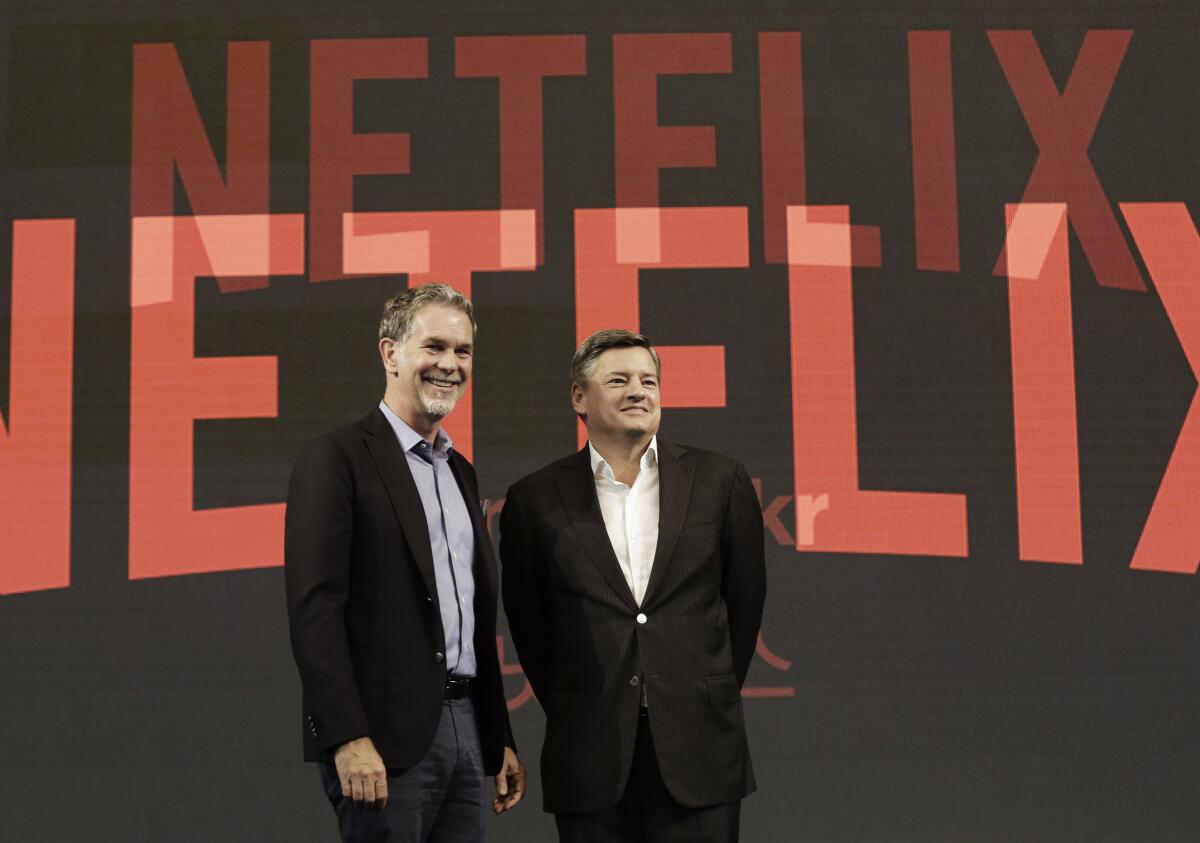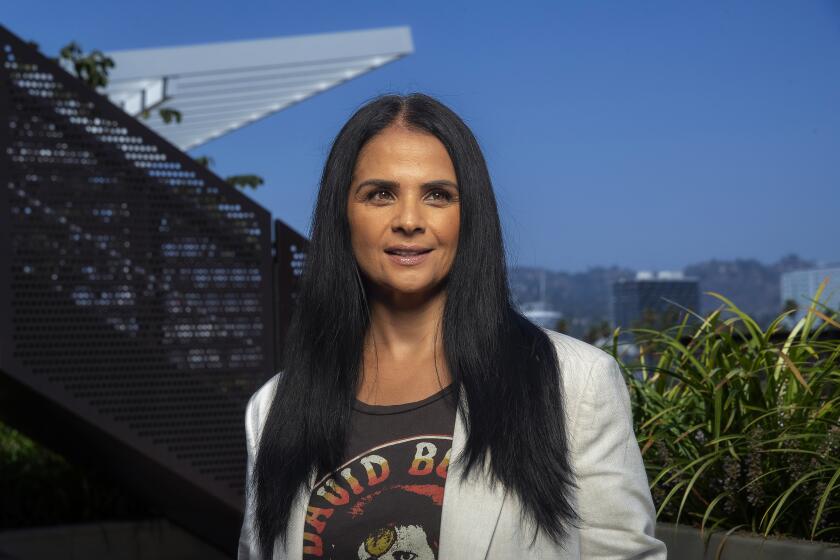Netflix raises its prices in the U.S., as the cost of content rises

The cost for consumers to stream Netflix popular series “Squid Game” just got more expensive in U.S.
The Los Gatos-based company on Friday raised U.S. subscription prices by as much as $2, depending on the plan.
The price increase comes as the streamer’s subscriber growth in the U.S. has slowed down as it faces more competition from rivals such as HBO Max and Disney+.
“If Netflix can’t raise revenues and continue to raise revenues by adding subscribers, then they have to do it by by raising prices,” said Brett Sappington, vice president of Culver City-based consumer insights firm Interpret. “This price increase is just part of their need to continue to raise revenues, to be able to compete effectively, to be able to create interesting content and then to be able to market effectively as competition’s heightened.”
Before the pandemic, Netflix had faced questions about weaker U.S. subscriber growth and whether it could maintain its momentum. But that changed as COVID-19 swept the globe and people joined Netflix in droves as they looked for ways to entertain themselves at home.
The company that defined the concept of binge watching has continued to reinvent itself. But as Disney, Apple and others enter the streaming business, Netflix faces the biggest challenge in its history.
That momentum has continued thanks to hit shows like “Squid Game,” the acclaimed South Korean survival drama. In the third quarter, there were 213.56 million global subscribers to the streaming service, up 9% compared with a year ago.
Still, some analysts are anticipating Netflix that will miss its internal subscriber projections for the fourth quarter. An average of analyst estimates compiled by FactSet predicts the streamer will add 8.4 million new global subscribers in the fourth quarter compared with Netflix’s forecast of 8.5 million. Netflix will release its earnings results Jan. 20.
Netflix’s large library of TV shows like fantasy series “The Witcher” and movies such as “Red Notice” has helped attract more consumers to its platform.
The streamer spent $17 billion on content last year and could spend up to $22 billion in 2022, said Ray Wang, principal analyst of Palo Alto-based Constellation Research. Netflix also is expanding its programs in local languages, helping attract viewers internationally.
Wang says he believes customers will shrug off the price increase, adding many customers see Netflix as a “core” streaming service.
“Right now, Netflix delivers enough value to justify the spend,” Wang said.
Netflix’s Global Head of TV, Bela Bajaria, discusses the company’s programming strategy and why foreign-language shows are taking off on the platform.
Netflix said the cost of a basic plan would increase $1 to $9.99 a month, while a standard plan that allows for streaming two screens at the same time would increase $1.50 to $15.49 a month. A Netflix premium plan that allows for streaming on four screens at one time and Ultra HD, would rise $2 to $19.99 a month. Netflix also raised the price for standard and premium subscription plans in Canada.
The last time Netflix raised prices in the U.S. was in October 2020.
“We understand people have more entertainment choices than ever and we’re committed to delivering an even better experience for our members,” Netflix said in a statement. “We’re updating our prices so that we can continue to offer a wide variety of quality entertainment options.”
Plus: The latest $1-billion deal, and the anime streaming wars.
The price increase puts Netflix’s standard plan at close to the $14.99 monthly cost of rival HBO Max’s ad-free subscription plan. HBO and HBO Max said it had 73.8 million subscribers by the end of last year, higher than what it previously had forecasted.
“I do believe that had to be in their mind that they believed that consumers would see them as either a comparable or even a higher value than HBO Max as they made that decision,” Sappington said. “I do think that they like the idea of having a premium position in the market.”
Netflix stock closed at $525.69 a share on Friday, up about 1%.
More to Read
Inside the business of entertainment
The Wide Shot brings you news, analysis and insights on everything from streaming wars to production — and what it all means for the future.
You may occasionally receive promotional content from the Los Angeles Times.














